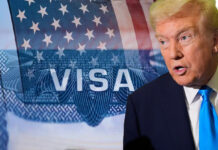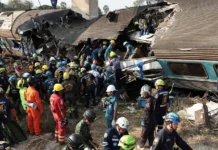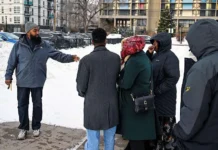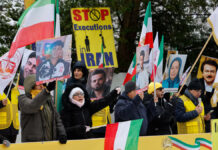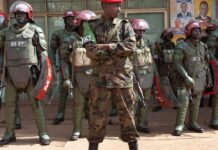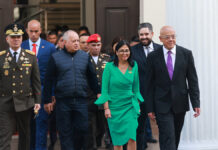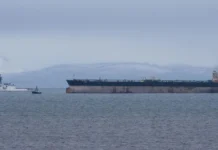
Anti-corruption protesters in Nepal defied an indefinite curfew on Tuesday, clashing with police and chanting slogans against Prime Minister K.P. Sharma Oli, a day after violent demonstrations left 19 people dead and more than 100 injured.
The unrest erupted after Oli’s government banned access to social media platforms last week, triggering outrage among young Nepalis who accused the government of trying to stifle dissent. The ban was lifted on Tuesday after nationwide protests turned deadly, with police firing tear gas and rubber bullets at demonstrators attempting to storm parliament in Kathmandu on Monday.
Authorities imposed a curfew across the capital and other cities, but protesters continued to gather near parliament and in central squares, burning tyres, throwing stones at security forces, and setting fire to the homes of some politicians, witnesses said.
Local media reported that several ministers had to be rescued by military helicopters, though Reuters could not immediately verify those accounts.
“We are still standing here for our future … We want this country corruption-free so that everyone can easily access education, hospitals, medical facilities, and have a bright future,” protester Robin Sreshtha told Reuters TV.
Protest organisers have branded the movement a “Gen Z uprising,” driven largely by young people frustrated with corruption, inequality, and lack of economic opportunities. Demonstrators have also highlighted the lavish lifestyles of politicians’ families, which they say contrast starkly with the daily struggles of ordinary Nepalis.
Oli, who convened a meeting of political parties on Tuesday, urged dialogue, saying: “Violence is not in the interest of the nation. We have to resort to peaceful dialogue to find solutions to any problem.” But he has yet to directly address protesters’ corruption allegations.
The 73-year-old leader, now serving his fourth term, faced further pressure after two cabinet ministers resigned late Monday “on moral grounds.”
The crisis has drawn international concern. India, Nepal’s largest neighbour and host to hundreds of thousands of Nepali migrant workers, urged restraint, saying: “As a close friend and neighbour, we hope all concerned will exercise restraint and address any issues through peaceful means and dialogue.”
A joint statement from the embassies of Australia, Finland, France, Japan, South Korea, the UK, Norway, Germany, and the U.S. expressed sadness over the deaths and urged both the government and protesters to avoid escalation and protect fundamental rights.
The social media ban, which blocked access to platforms including Facebook, was defended by the government as necessary to combat disinformation and online fraud. Critics, however, called it an attempt to throttle free speech and suppress political criticism.
The protests, the worst Nepal has seen in decades, underscore the fragility of the Himalayan nation’s democracy, which has struggled with political instability and economic hardship since the abolition of its monarchy in 2008.
Source: Reuters
Written By Rodney Mbua









